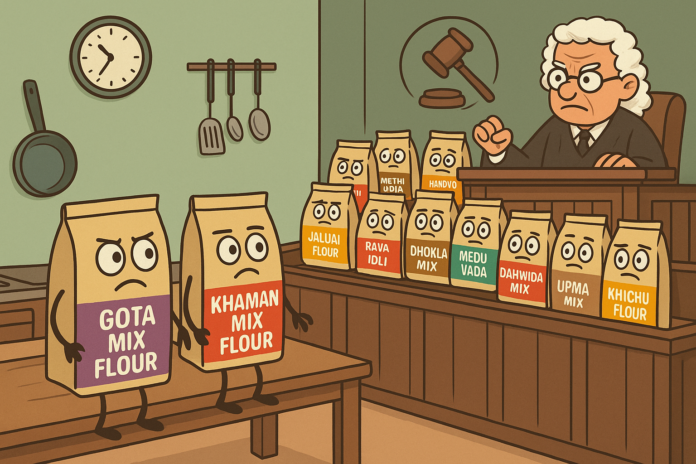Ever Wondered About the Tax on Your Instant Mixes? Here’s the Scoop!
We all love those instant mix packets in our kitchens – whether it’s for a quick Dhokla, fluffy Idlis, or crispy Dosas. They save us so much time! But have you ever thought about how much tax we pay on them? Recently, a big tax decision in Gujarat made it clear how these popular mixes are taxed under GST, and it affects both the companies making them and us, the buyers.
The Big Question: Is it Just Flour, or Something More?
This whole discussion started with a company called Gajanand Foods Pvt. Ltd. They make 14 different kinds of instant mixes, like Gota Mix, Khaman Mix, and Dosa Mix.
Gajanand Foods argued that their products are simply “ready to cook” flours. You still need to add water, cook, and prepare them, right? So, they felt their mixes should be taxed like plain flours, which have a lower GST rate of 5%. Their main points were:
- What’s Inside? They said their mixes were mostly just flour, and they didn’t have corn or wheat flour.
- What We Call It: Everyone calls them “instant mix flour,” so they should be taxed as flour.
- Old Tax Rules: They even looked at old tax decisions from before GST, where similar products were taxed as flours.
- The “Main Thing” Rule: There’s a tax rule that says if something is made of different parts, it should be taxed based on its “main ingredient.” They felt flour was the main thing.
- The ‘Sattu’ Example: They even mentioned a government circular that said ‘Sattu’ (a mix of flours) gets taxed like flour, even with small additions.
The Tax Man’s Decision: 18% GST It Is!
But the tax authority (called the AAAR) disagreed. They decided that these instant mix products are actually prepared foods, not just flours. So, they ruled that these mixes should be taxed at a higher GST rate of 18%.
Why the Higher Tax? The Reasons Explained Simply
The tax authority gave clear reasons why these mixes aren’t just “flour”:
- Too Many “Extras”: Plain flour can have tiny amounts of added things like vitamins or baking powder. But Gajanand Foods’ mixes had many other things like spices, sugar, salt, and chili powder – making up anywhere from 5% to 37% of the product! The tax authority said: that’s not a “tiny amount.”
- Meant to Be Cooked Food: These added ingredients were clearly put in so you could make a meal or dish, not just bake bread from plain flour.
- Wheat Flour Problem: Some of their mixes (like Gota Mix and Dosa Mix) actually did contain wheat flour. The rules for the lower tax rate for flours specifically say “other than wheat flour,” so these mixes didn’t fit.
- Spices Don’t Belong in “Flour” Category: The tax rules for plain flours (like HSN 1106) don’t mention adding spices or other such ingredients.
“But What About My Arguments?” Why They Didn’t Fly
Gajanand Foods tried to fight back, but the tax authority had answers for everything:
- “Main Ingredient” Rule Didn’t Apply: The tax authority said that the “main ingredient” rule only applies if a product could fit into two categories. But since these mixes already had too many “extras,” they simply didn’t fit the plain flour categories at all. So, that rule was out.
- ‘Sattu’ Is Different: They explained that the ‘Sattu’ rule applied because ‘Sattu’ only has very, very tiny amounts of extra ingredients. The instant mixes had much larger amounts, making them different.
- Old Tax Rules Don’t Count for GST: They said that old tax decisions from the VAT era (before GST) don’t apply anymore. GST has its own specific rules and a different system based on HSN codes.
So, What Does This Mean for Your Shopping Cart?
Basically, this ruling confirms that when you buy those convenient instant mix packets, you’re buying a prepared food product rather than just basic flour. Because they’re considered “prepared foods” with all those extra ingredients, they fall under a higher tax bracket. So, don’t be surprised when you see that 18% GST on your instant mixes – it’s because they’re seen as more than just simple flour!



